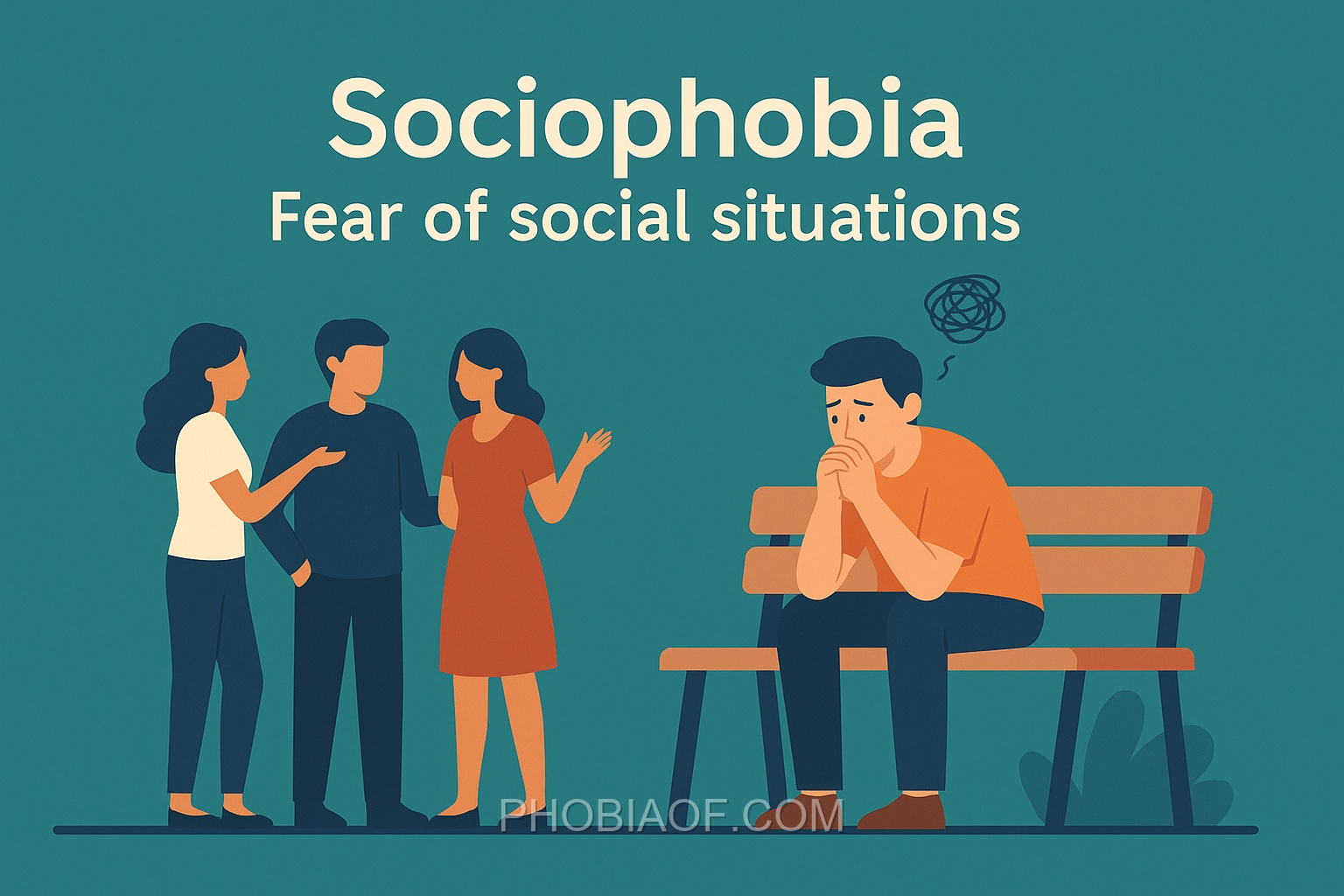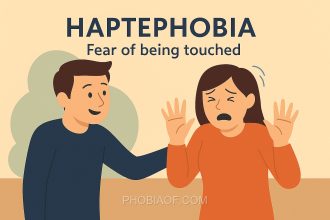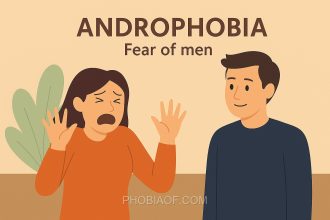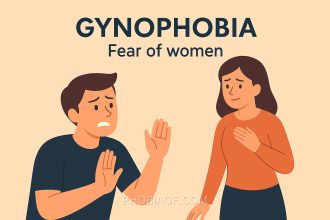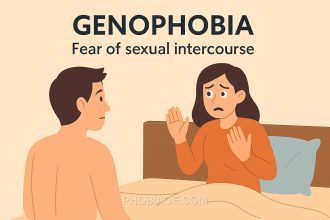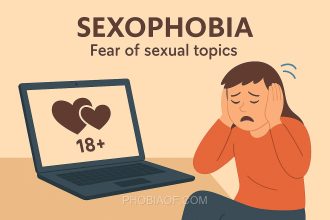Have you ever felt your heart race or your palms get sweaty at the mere thought of speaking in front of a crowd, or even just mingling at a party? If so, you’re not alone. This overwhelming fear of social situations is known as Sociophobia.
Sociophobia is derived from the Latin word “socius,” meaning companion, and the Greek word “phobos,” meaning fear. In simple terms, it’s the intense fear or anxiety about social interactions, where individuals worry excessively about being judged, embarrassed, or scrutinized by others.
People affected by Sociophobia can experience a range of symptoms, such as:
- Increased heart rate
- Sweating
- Trembling
- Nausea
- Difficulty speaking
These symptoms can make everyday activities, like attending school, going to work, or even shopping, feel daunting. The fear can lead to avoidance behaviors, where individuals might shy away from social settings altogether, impacting their personal and professional lives.
Understanding Sociophobia is the first step toward compassion and support for those who struggle with it. By recognizing the signs and impacts of this fear, we can foster environments where everyone feels more comfortable and accepted.
Causes of Sociophobia
Sociophobia, commonly known as social anxiety disorder, is a condition characterized by an intense fear of social situations. Understanding its origins can help in managing and treating the condition. Below are some potential causes:
- Genetic Predisposition:
Studies suggest that genetics can play a role in the development of sociophobia. If a close family member has an anxiety disorder, you may have a higher risk of developing one yourself.
- Traumatic Experiences:
Experiencing a traumatic event, especially during childhood, can lead to the development of sociophobia. Bullying, rejection, or humiliation in social settings are common triggers.
- Learned Behavior:
Sociophobia can be learned by observing others. If a parent or sibling exhibits anxious behaviors in social situations, you might adopt similar behaviors.
- Psychological Factors:
Low self-esteem and excessive self-consciousness can contribute to sociophobia. Individuals who are overly critical of themselves may fear negative evaluation from others.
- Environmental Factors:
Growing up in an environment that lacks social interaction or encourages high-stakes social performance can increase the likelihood of developing sociophobia.
Research continues to explore the precise mechanisms behind sociophobia. One interesting theory suggests that it may be linked to an overactive amygdala, the part of the brain responsible for processing fear responses. Understanding these potential causes can aid in devising effective treatment strategies.
Symptoms of Sociophobia
Sociophobia, also known as social anxiety disorder, is characterized by an intense fear or anxiety surrounding social situations. This anxiety often stems from a fear of being judged, embarrassed, or humiliated in front of others. The symptoms can be both physical and emotional, deeply affecting those who experience them. Below are some common symptoms of sociophobia:
- Intense fear or anxiety: A person may experience overwhelming fear when faced with social interactions or the thought of them.
- Panic attacks: Sudden episodes of intense fear that may include symptoms like a racing heart, shortness of breath, or dizziness.
- Excessive sweating: Sweating excessively, especially in social settings, is a common physical response to anxiety.
- Rapid heartbeat: The heart may race or pound, often accompanied by feelings of panic or dread.
- Trembling or shaking: Uncontrollable shaking or trembling, especially in situations that cause anxiety.
- Avoidance of social situations: Actively avoiding social interactions or places due to fear of negative evaluation.
- Overwhelming dread: Persistent feelings of dread or worry about upcoming social events.
- Negative self-talk: Harsh self-criticism or negative thoughts about one’s ability to interact socially.
- Muscle tension: Physical tension in the body, often felt as tightness or pain in the muscles.
- Difficulty speaking: Trouble expressing oneself or finding words in social situations due to anxiety.
When severe, these symptoms can significantly interfere with daily life, making it difficult to engage in work, school, or social activities.
Treatment for Fear of Social Situations
It’s important to remember that sociophobia, or the fear of social situations, is a common and manageable condition. With the right treatment and coping strategies, you can overcome this phobia and lead a fulfilling life. Let’s explore the various treatment options available to help you on this journey.
Therapies for Overcoming Sociophobia
- Exposure Therapy: This therapy involves gradually facing and becoming comfortable with social situations that cause fear. By slowly and repeatedly exposing yourself to the source of your fear in a controlled manner, you can reduce anxiety over time and build confidence.
- Cognitive-Behavioral Therapy (CBT): CBT helps you identify and change negative thought patterns that contribute to your fear of social situations. By learning to challenge and modify these thoughts, you can develop healthier, more realistic perspectives.
- Counseling: Talking to a counselor or therapist provides a safe space to explore your fears and anxieties. Through counseling, you can gain insights into the root causes of your sociophobia and develop strategies to manage it effectively.
Self-Help Coping Techniques
- Relaxation Exercises: Techniques such as deep breathing, progressive muscle relaxation, and visualization can help manage anxiety symptoms by calming your mind and body.
- Meditation: Practicing mindfulness meditation can increase your awareness of the present moment, helping you to reduce anxiety and avoid overthinking social situations.
- Support Groups: Joining a support group allows you to connect with others who share similar experiences. Sharing your challenges and successes with peers can provide encouragement and valuable insights.
Medication
In some severe cases, medication such as anti-anxiety medications may be prescribed to help manage symptoms. However, therapy and coping skills are typically the primary focus of treatment.
Remember, seeking professional help is a crucial step if your sociophobia is interfering with your daily life. A mental health professional can guide you in selecting the most appropriate treatment plan tailored to your needs. With time, patience, and support, overcoming your fear of social situations is entirely achievable.
Conclusion
Understanding the causes and symptoms of sociophobia can be a powerful first step in addressing this fear. By recognizing the triggers and manifestations of sociophobia, individuals can begin to take proactive steps towards managing their anxiety in social situations. Awareness is key, and with it comes the potential for significant personal growth and relief.
Many people have successfully overcome or learned to manage their phobias with time, patience, and the right support. It’s important to remember that you are not alone in this journey. With professional guidance, such as therapy, and the support of loved ones, overcoming sociophobia is entirely possible. If you find yourself struggling, consider reaching out to a healthcare professional or therapist who can provide tailored advice and support.
Embrace the possibility of change, and take comfort in knowing that many have walked this path before you and have emerged stronger and more resilient. With determination and the right resources, you can build a fulfilling social life free from the constraints of fear.
